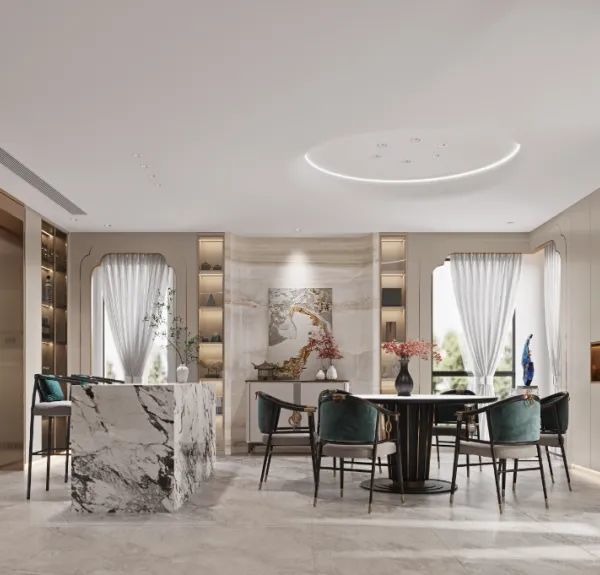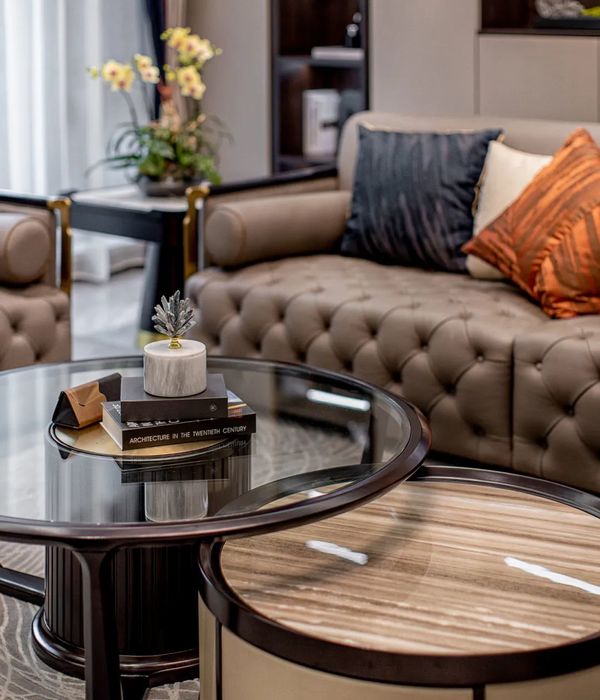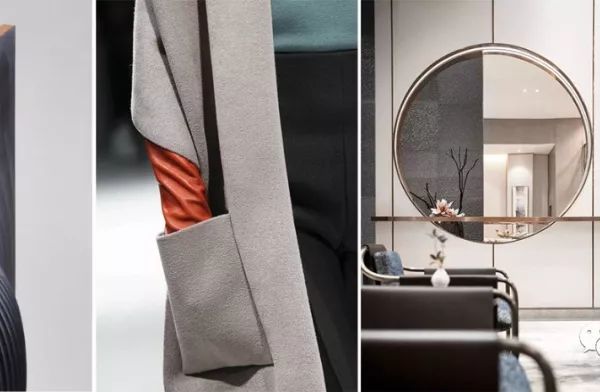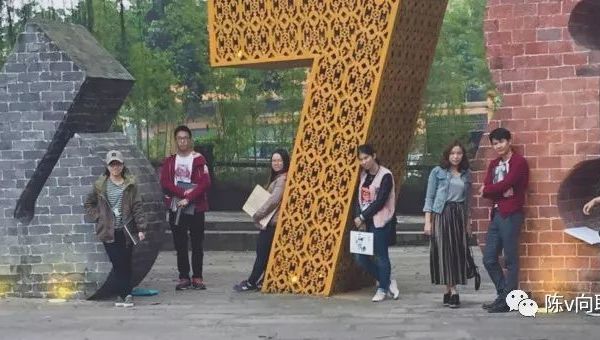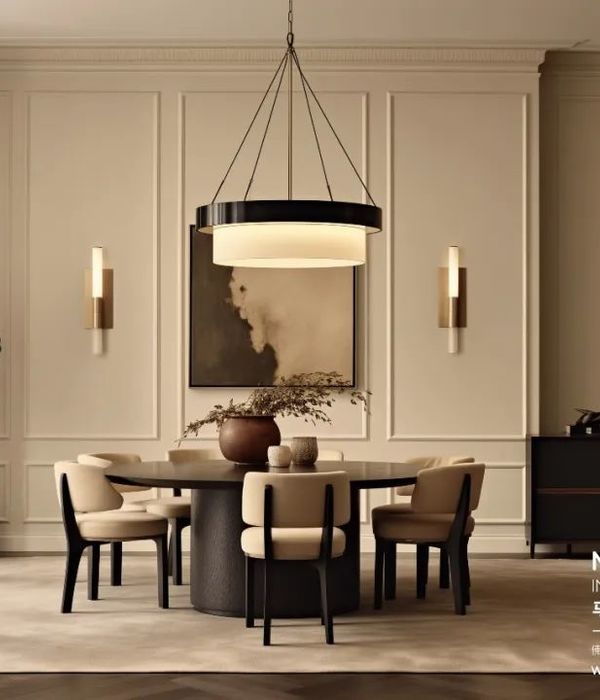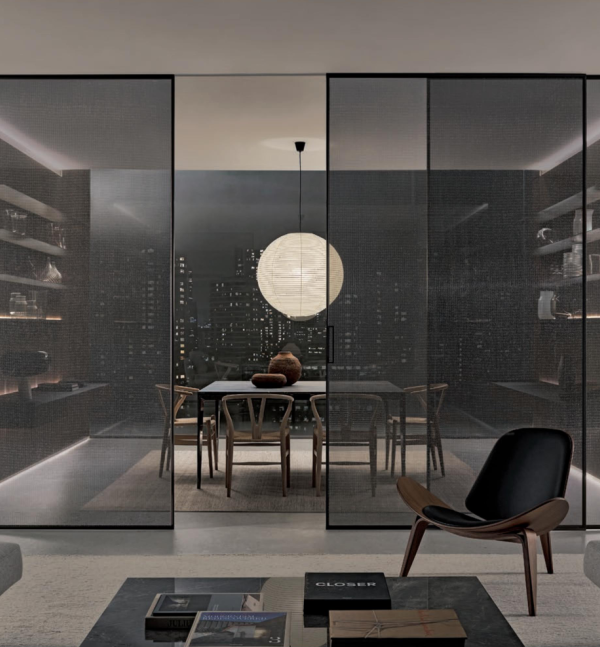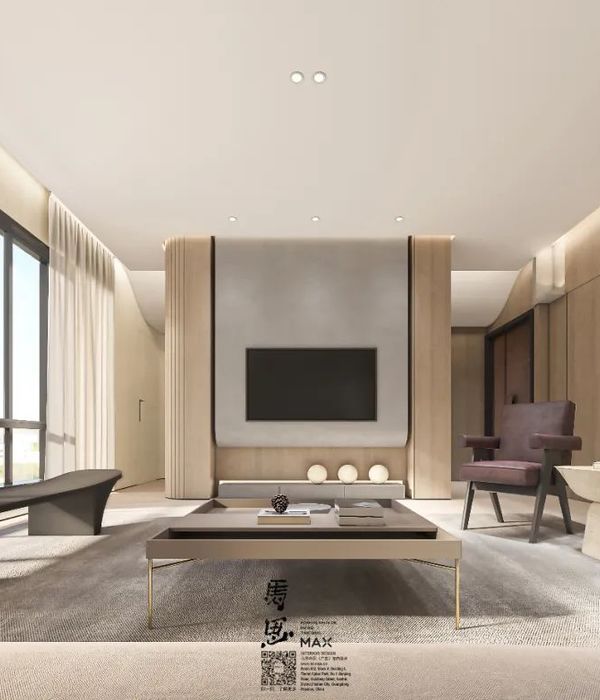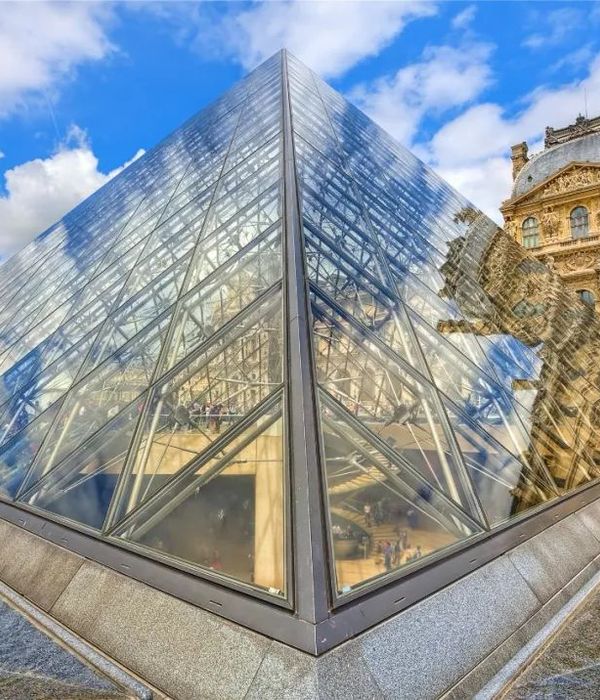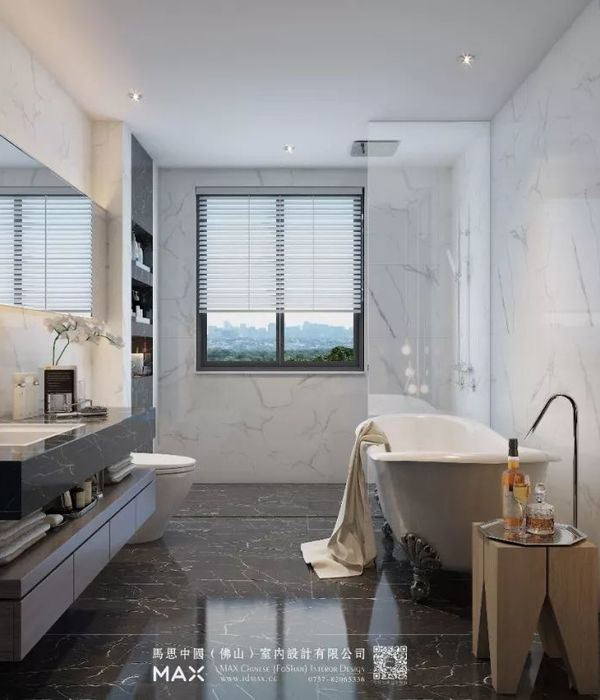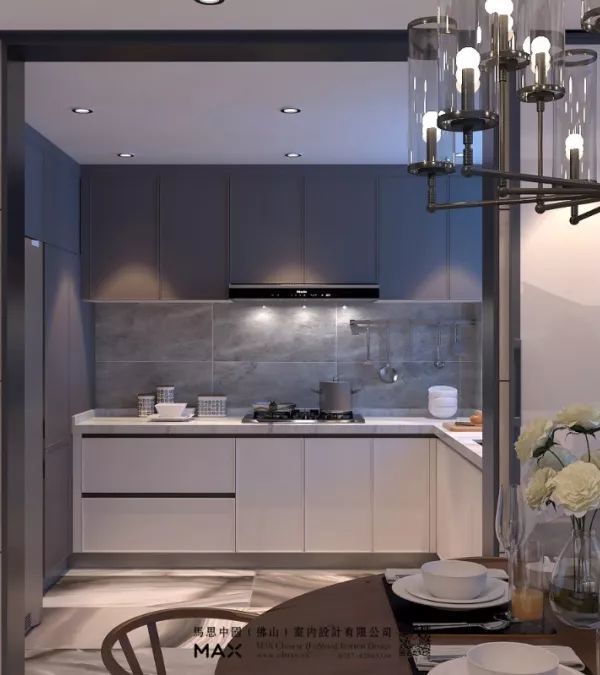A residential building located halfway up a cliff, overlooking the ocean. Thick clumps of trees that grow along the slope of the land surrounding the house cast a series of organic silhouettes that make the slope seem to come alive. We decided that the appropriate form to build would be as low-lying as possible, while also allowing the architecture to become embedded in the surrounding landscape according to the contours of the terrain. This would allow us to minimize the impact of the building on its environment.
The design of the walls plays an important role in creating the overall sense of presence that a building projects. As such, we also tried to prevent the walls of this house from becoming surfaces that would obstruct or impede movement and sight. Glass and screens along the enclosed perimeter of the house gives the second floor of this residence a certain transparency. Slender, deep-set eaves cast deep shadows on the facade of the building, softening the impact of the building’s physical presence in relation to its environment.
The various components of the building were structured in order to allow the inhabitants to enjoy a different view of the outside on each level. The first floor features a stone floor and concrete walls finished with plaster, while the Japanese paper screens fitted inside the glass reflect the shadows of plants and trees. The hard-edged surfaces and finishes coexist with the soft, muted tones of the Japanese paper.
The second storey, in contrast, features an open-plan living space, the entirety of which can be opened up towards the ocean. A series of wide eaves stand between the outside of the house and the interior, which is articulated into smaller sections by a row of pillars. Going down the staircase-shaped terrace allows one to gradually draw closer to the outdoor landscape. The section that divides the two different elevations on this floor provides seating throughout, functioning as a unique Japanese-style verandah (engawa). A steel-reinforced concrete structure was used for the second floor, and a Vierendeel bridge structure allowed us to float a large, thin roof on top. The pillars consist of square cylindrical poles (measuring 75mm across) made of solid iron arranged in a densely packed formation using wooden modules (900 X 1800mm). By creating several areas of low-level rigidity, we were able to do away with the need for braces.
这是一栋位于山腰,面朝大海,周围遍布树林的住宅,建筑师将建筑尽可能的处理得低调,与地形契合,融入风景,减少对环境的影响。墙壁是一个重要的构建元素,确保设计的整体感,同时设计师也削弱墙的存在感,让流线与视线更为开放。细长,巨大的屋檐投下很深的阴影,结合二层的玻璃外墙,软化了建筑外立面,降低了对周围环境的影响。
每一层都有不同的视野。一楼是混凝土墙与市场。俵上日本纸的玻璃让投射在上面的树木阴影如同画作。二楼相抵更为开放,一侧可以全部打开迎向海,外面是阶梯状的日系户外景观平台,可以提供不同高度位置上的座位,之外生活空间之外还有一个过度的类似外廊的空间。采用的结构体系可以支持住大而薄的屋顶。设计师设置了灵活的楼层,满足了需求。
Credit Information
Architecture :
Kazuhiko Kishimoto /
acaa
Photography :
Hiroshi Ueda
Project Outline
Location :
Yokosuka Kanagawa
Date of
Completion :
July 2011
Principal
Use :
Private House
Structure :
RC, Steel
Site Area: 454m2
Total Floor Area : 286.93m2 (54.86m2/B1F, 131.22m2/1F, 100.85m2/2F,)
Structural
Engineer :
Takahiro Suwabe
MORE:
Kazuhiko Kishimoto / acaa
,更多请至:
{{item.text_origin}}

